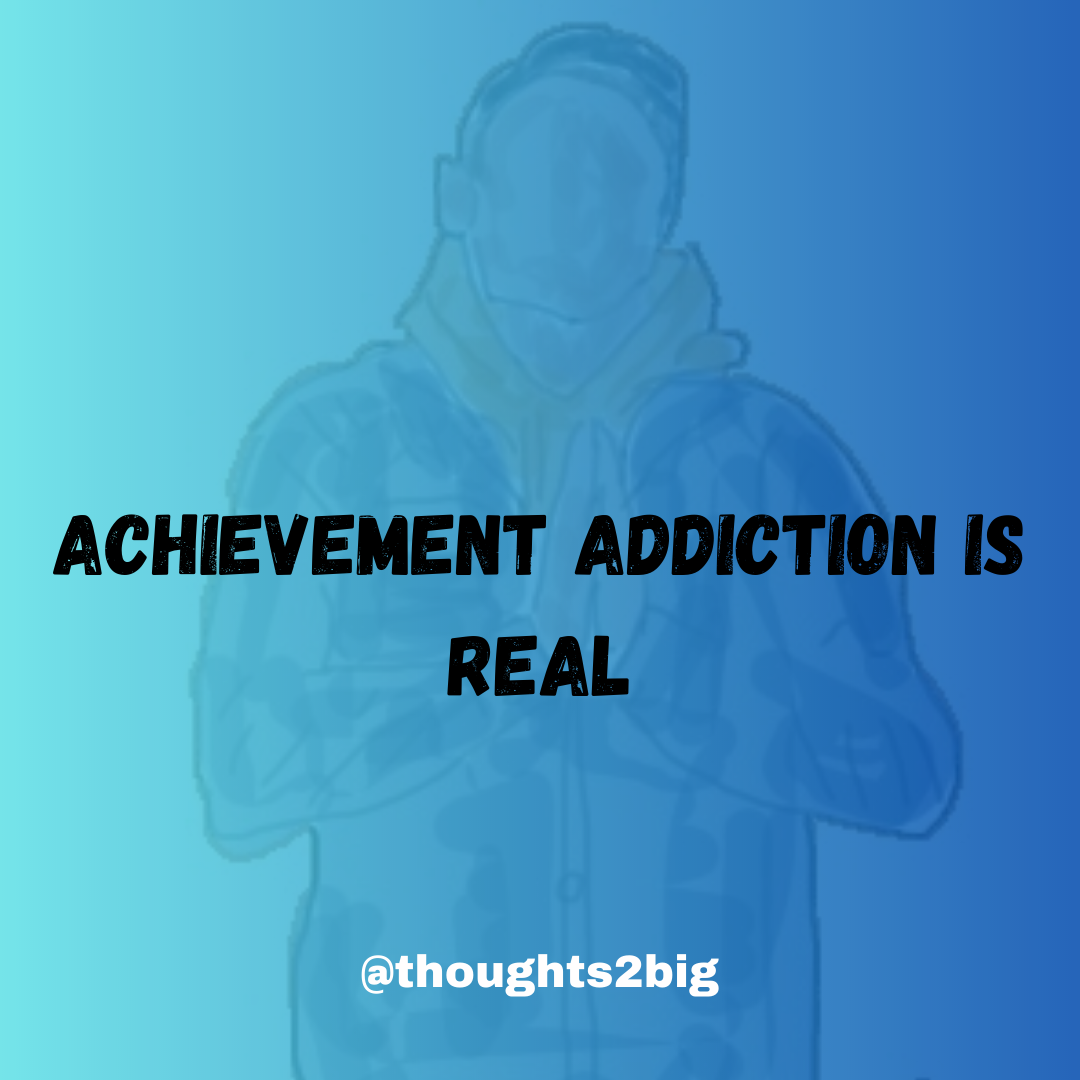Achievement Addiction is Real

Achievement is often celebrated as a positive trait, and for good reason. It’s important to set goals and work hard to achieve them, as this can give us a sense of purpose and fulfillment.
However, like any good thing, too much of it can become a bad thing. In some cases, achievement can become an addiction that can have negative consequences on our mental health and well-being. I know for certain that this has been the case for me at times.
Achievement addiction, also known as “high-achieving syndrome,” is an excessive need to achieve, often at the expense of other areas of our lives, such as relationships or personal health. You may constantly seek out new goals to conquer, even when they have already accomplished a great deal. We may feel restless or dissatisfied when we are not working towards a goal, and may experience anxiety or low mood if we fall short of expectations.
Sound familiar?
One of the reasons why achievement can become an addiction is that it provides a temporary sense of satisfaction or validation from external sources. When we achieve something, we may feel a rush of endorphins and a sense of pride, which can be addictive. This can lead us to constantly chase after that feeling, even when it’s not sustainable or healthy.
We’ve talked about why having an external source of validation can be dangerous, and achievement often deals with these external sources.
Chasing achievements can distract us from underlying issues or emotions. If we are struggling with anxiety, depression, or other mental health issues, we may turn to achievement as a way to distract ourselves or avoid dealing with those emotions. I know I have definitely done this, particularly in the years after Erbie died. I looked for academic and athletic success more often back then. It kept me busy and away from dealing with his death.
Constantly needing to achieve can lead to burnout, exhaustion, and a lack of balance in our lives. It can also damage our relationships and leave us feeling lonely or disconnected. Looking back on Lonely Boy now, it is clear that a lot of my loneliness has stemmed from a constant need to achieve.
So, how can we avoid or overcome achievement addiction? The first step is to be mindful of our own behaviors and thought patterns. We can make an effort to set realistic goals and be kind to ourselves when we fall short. We can actively take breaks from seeking to achieve goals, and learn to be happy with just being.
It’s also important to cultivate a sense of balance in our lives. This means making time for relationships, hobbies, and self-care, in addition to work or achievement-related activities. Balance is key. We can avoid the pitfalls of achievement addiction and enjoy a more fulfilling and sustainable life through it.
While striving to achieve is important and worthwhile, it’s important to be mindful of the potential for addiction. By being aware of our own behaviours and thought patterns, and by cultivating balance in our lives, we can avoid the negative consequences of achievement addiction.
You should want to achieve, but it probably shouldn’t consume you.
I also have a Substack if you want to read more of my thoughts.